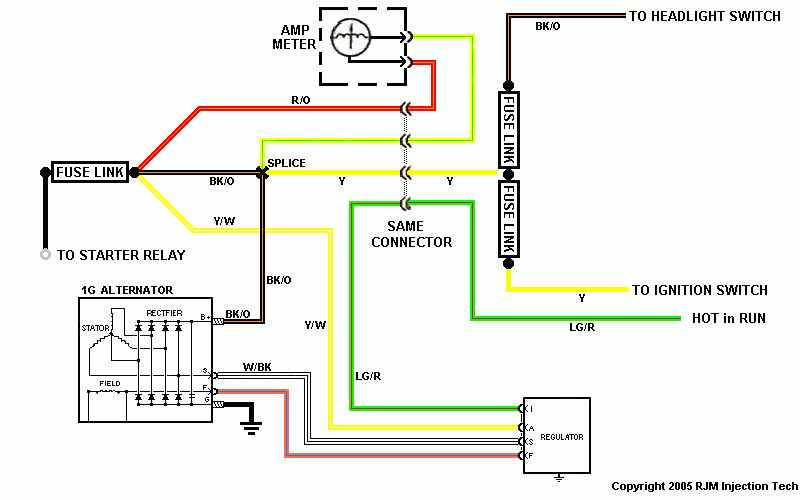
The alternator cannot function without it. The additional ignition input wire is linked to the low-voltage warning light beside the ignition switch.

The regulator controls the alternator’s output according to the voltage level. The sensing wire from the alternator is connected to the battery’s terminal as a link with the regulator.Its use deals with interference and improves sensing. The negative wire is the primary ground connection.Two terminal wires (usually adjacent) – The exciter wire is connected to terminal 1 of the regulator, and the ignition input wire is to terminal 2.The alternator’s positive terminal is connected to the battery by the red wire (or via a junction box).This type of alternator has the following wires: It also differs from the two-wire alternator by having a positive wire attached to it using a screw instead of a plug. The charge output is adjusted according to the voltage level monitored in the ignition and fuse box. Then, connect the negative terminal of the brush (it may be blue or black) from the rotor field to any part of the alternator’s casing (as the ground).Ī three-way alternator with three pins usually refers to an alternator with an integrated voltage regulator. Step 4: Electrical ConnectionsĬonnect the brushes of the positive red cable to the alternator’s positive terminal. Step 3: Connect the DC MotorĬonnect the DC motor and alternator using the pulley. You can use screws to mount it and the alternator, too. Set the vice on the other side of the board.

Step 1: Mount the MotorĬonnect a pulley to a 500W DC motor shaft and mount the motor on one side of the wooden board. I’ve divided the procedure to excite the exciter wire into six steps.

The exciter wire is a small strand connected to a switch on the alternator triggered by the ignition switch. It is only found in vehicles with alternators and external voltage regulators. However, the exciter wire is not required in modern vehicles with built-in voltage regulators. The exciter wire generates the required voltage for the alternator to function and, thus, for the car to start.

Wiring the Exciter Wire (Two/Three-Wire Alternators).Exciting the Exciter Wire (One-Wire Alternator).Requirements for Wiring the Exciter Wire.Any ideas on what this problem could be? Thank you in advance for any help you may be able to provide. It’s a 3 wire setup but the yellow wire has clearly seen some high current. I don't believe this wire is the reason for the lack of output on the alternator because it looks like it's been broken off for some time. I have since noticed that there is a wire broken off near the fender well, I traced that wire back to it's source and it goes to the 3 wire plug I replaced. I was told to replace one of the plugs (3 wire plug that goes to the stator) I replaced the plug but still no output. I took the alternator back and had it tested and it passed. I purchased and installed a new alternator but when I checked it with a voltmeter it did not appear to be charging. I took the alternator to Auto Zone and they tested it and said it was bad. The alternator in the truck was giving me problems (gauge needle was bouncing back and forth, headlights were dimming/flashing, checking with voltmeter showed an inconsistent flow of power would spike to 14 then down to 11 then back to 14.


 0 kommentar(er)
0 kommentar(er)
